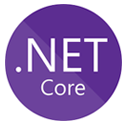
Evolution of ASP.NET Core happened when ASP.NET WebForm and ASP.NET MVC was already couple of years old in the industry. Even though ASP.NET Webform and ASP.NET MVC available because of its age is considered to be very matured for web application development, it is because of the popularity of ASP.NET CoreFramework and many exclusive features of ASP.NET Core that today it is dominating over Web Forms and MVC are first choice for large sized enterprise web application development.
Even if you are experienced in ASP.NET MVC, if you don’t have working knowledge of ASP.NET MVC Core you are treated as out dated in the industry. This is the reason every web developer today is upgrading himself to ASP.NET Core.
www.bestdotnettraining.com’s online ASP.NET Core Training course begins with understanding MVC design pattern and applying various features of the ASP.NET Core framework to developing light weight and platform independent but large sized Web applications.
The exclusivity of our online ASP.NET Core training is on every topic and also has walkthroughs and sample programs for each and every module. For any person to excel, he not only needs the practical knowledge but also he should be able to communicate the same in Interviews and our ASP.NET Coresections really comes handy.